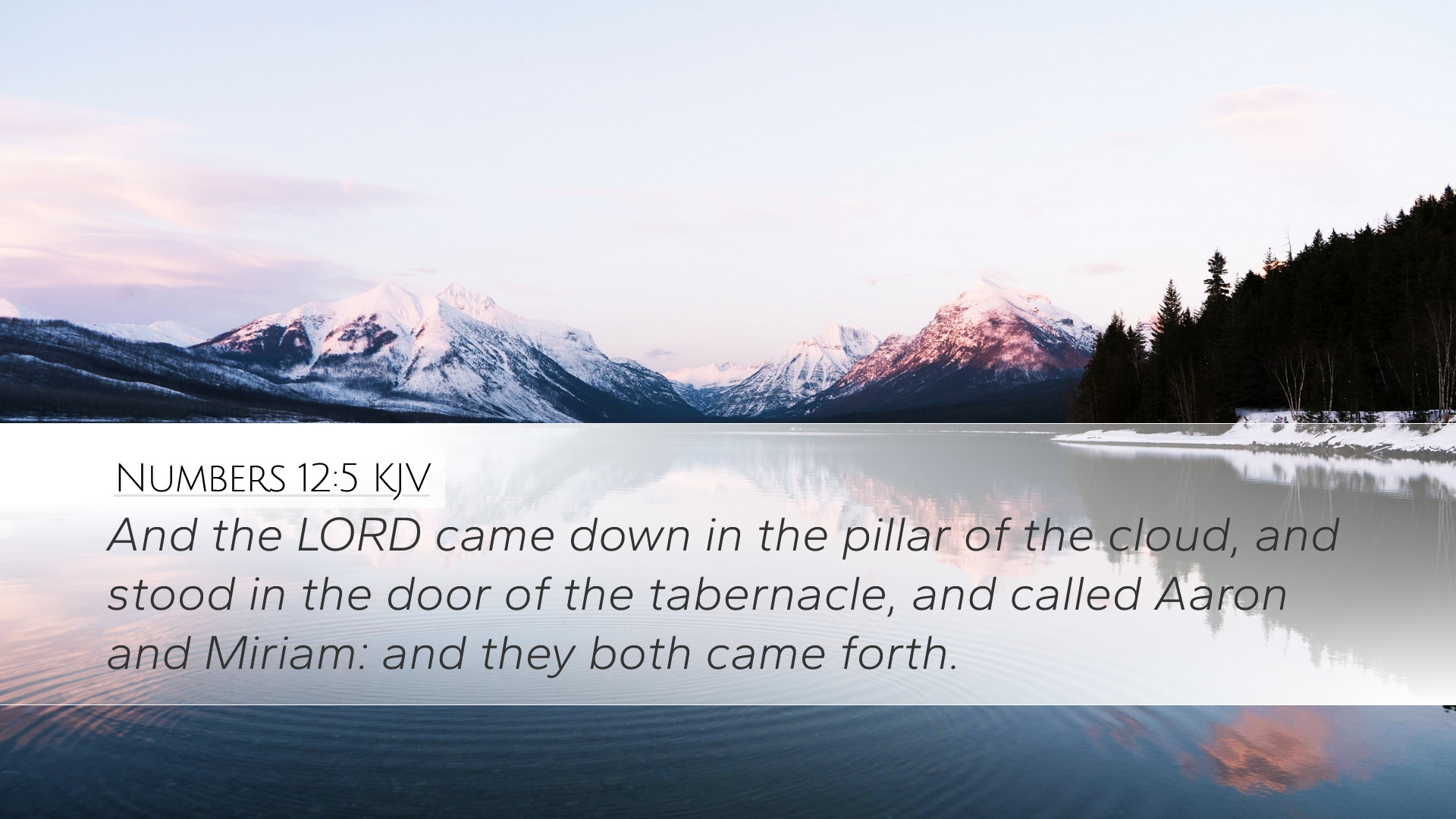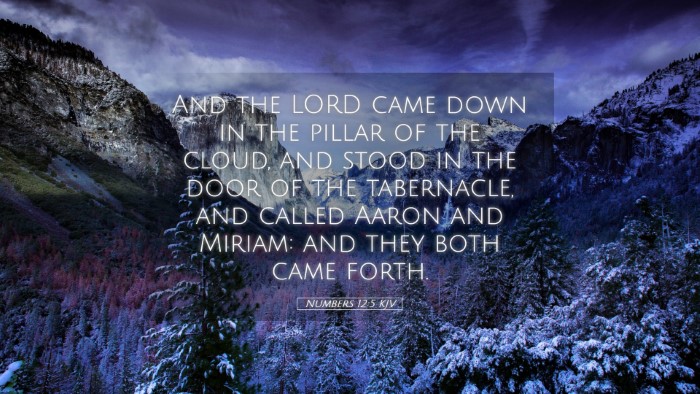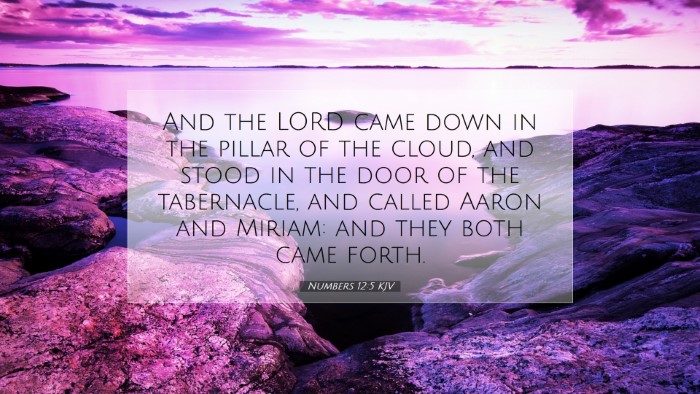Commentary on Numbers 12:5
Numbers 12:5 states, "And the Lord came down in the pillar of the cloud, and stood in the door of the tabernacle, and called Aaron and Miriam; and they both came forth." This verse marks a significant event in the narrative of Israel, highlighting the divine authority of God and His direct communication with Moses’ siblings, Aaron and Miriam. The context surrounding this verse is critical for understanding its implications for leadership, accountability, and divine judgement.
Divine Manifestation
This scene is marked by the presence of God in a cloud, a recurring theme throughout the Book of Exodus and Numbers that symbolizes divine guidance and revelation.
- Matthew Henry expounds that the cloud represents God's glory and presence, serving as an assurance to the Israelites of His constant guidance.
- Albert Barnes notes that the cloud represents a barrier between the divine and the human, illustrating the transcendence of God over diminutive human concerns.
- Adam Clarke suggests that the appearance of God in this form serves as a protection for the people from the full manifestation of His holiness.
God's Authority in Leadership
The calling of Aaron and Miriam by God himself emphasizes the structure of leadership established by God. It conveys a clear message about the importance of authority and the accountability of leaders.
- Matthew Henry emphasizes that the Lord’s direct involvement showcases the seriousness of the situation as Miriam and Aaron had spoken against Moses, undermining his leadership.
- Albert Barnes comments on the way God addresses the leaders, indicating that any rebellion against divine order, especially concerning anointed leadership, will not be overlooked.
- Adam Clarke elaborates further, suggesting that by calling them forth, God seeks to challenge their perceptions and attitudes toward Moses’ leadership.
The Role of Moses
Moses is depicted not just as a leader but as a mediator. This passage sets the stage for the ensuing discussion about his unique relationship with God.
- Matthew Henry asserts that Moses’ position as the 'man of God' is divinely recognized, elevating him above his siblings.
- Albert Barnes discusses the implications of Moses’ leadership, emphasizing that it is the Lord who appointed him and that any opposition is tantamount to opposing God Himself.
- Adam Clarke suggests that Moses' fortitude is demonstrated here, as he remains undeterred by criticism, underlining the essential characteristics of a godly leader.
The Seriousness of Rebellion
The divine visitation serves as a reminder of the gravity of challenging God's appointed leaders. The severity of Miriam and Aaron’s actions towards Moses requires immediate divine attention.
- Matthew Henry underscores the lesson learned here: rebellion against the leader appointed by God invites severe scrutiny and judgment.
- Albert Barnes warns against the consequences of dissent, noting that public rebellion can lead to significant communal ramifications as God's favor can be withdrawn.
- Adam Clarke points out that this confrontation illustrates God's deep concern for maintaining the integrity of leadership and the peace within the community of believers.
Implications for Today
The passage from Numbers 12:5 holds valuable lessons for contemporary spiritual leaders, theologians, and students of the Bible.
- Firstly, it emphasizes the importance of respecting divinely instituted authority and the inherent dangers of questioning it.
- Secondly, the passage calls for humility among leaders and a recognition of their position as being sanctioned by God.
- Lastly, it invites leaders to seek God’s guidance constantly, as the cloud signifies His guidance, reminding us to rely on divine wisdom in our leadership.
Conclusion
Numbers 12:5, thus, encapsulates profound theological insights regarding the nature of divine authority, the essential role of God’s appointed leaders, and the consequences of rebellion. This commentary synthesizes timeless truths relevant for both ancient Israel and today's church community, reminding us of the perpetual need for humility and reverence before God's chosen leaders.


